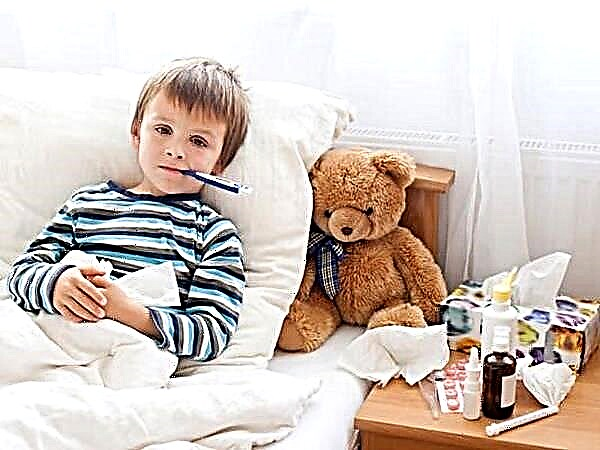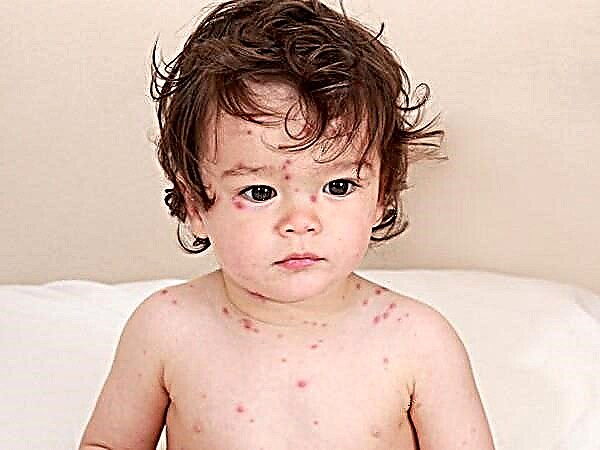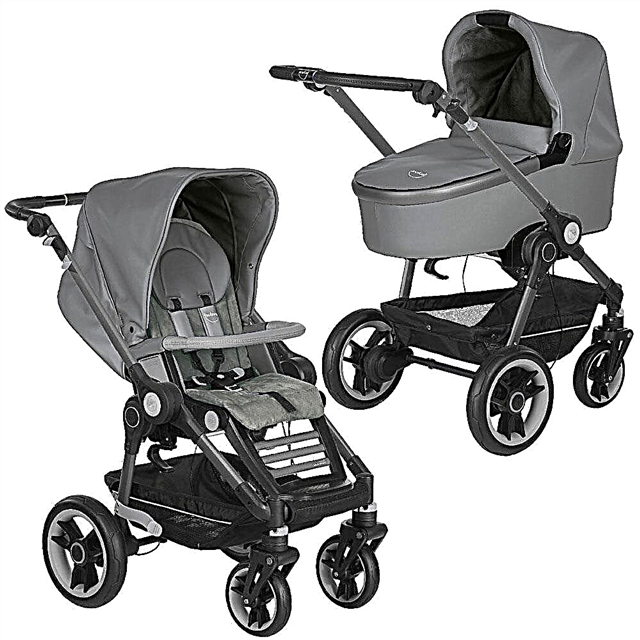Itching in the nose is an obsessive condition that causes discomfort and is accompanied by sneezing, mucous secretions, lacrimation or swelling of the mucous membranes. Itching in the nose can be caused by external and internal causes.

Child scratches nose
Causes of itching in the nose
There are a number of the most common reasons why a child's nose is constantly itchy. They are characterized by features of manifestation and additional symptoms.
Pathological processes
Causes of itching in children may include:
- Infectious diseases. This, for example, flu, ARVI. In addition to itching, there is an increase in body temperature, weakness, decreased appetite;
- Fungal infections. This is most often mycosis and candidiasis. If the child also sneezes, then most likely he has a fungus;
- Inflammatory disease. At the same time, the baby's breathing becomes more difficult, the temperature rises, and he can strongly comb the wings of the nose.

The girl has a runny nose and itchy nose
Allergic reaction
The most common reason why the nose itches in a newborn baby is the presence of some kind of allergens in the room where he lives. Ordinary dust most often acts as one of them. In this case, there is no reason for concern - you just need to regularly thoroughly clean the room.
Also, allergens can be:
- Hair of cats and dogs;
- Plant pollen (especially in the month of June);
- Some medicines and household chemicals;
- Food.
Council. If the child is constantly scratching his nose, you need to try to find out what is the provoking factor. This is quite easy to do - you need to alternately prevent the baby from interacting with all potential allergens. As a result, the one that causes itching in the baby's nose will be determined.
It is quite easy to determine that a child is constantly rubbing his nose precisely because he is in contact with an allergen. Allergies usually have additional symptoms:
- Unreasonable lacrimation;
- Redness of the eyes (whites);
- Swelling of the face and head;
- Changing the shade of the upper epidermis.
Note! It is very rare when a child often scratches his nose due to allergies, but he does not have additional manifestations.

The girl is allergic to pollen
Previous injuries of the nose
Trauma can be the cause of itching in the child's nose. This is especially true for children aged 2 to 5 years, who are very active, but still do not know how to control their actions, their vestibular apparatus is not sufficiently developed.
Additional Information. In this case, it is necessary to treat the wound with an antiseptic. This will eliminate the bacteria in the cavity that increase the discomfort and contribute to the development of complications.
Dermatological diseases
Infections irritate the skin areas where microorganisms are present. Most often, itching in the nasal cavity, and the fact that the child begins to comb it, provoke such diseases:
- Eczema;
- Sycosis;
- Dermatosis;
- Scabies.
Important! Self-treatment of any pathology is meaningless and even harmful. Only a doctor can accurately diagnose the disease.

Boy wiping his nose
State of the environment
Itching and sneezing in a child's nose can occur as a result of exposure to the nasal cavity of excessively low or high temperatures, dry indoor air and poor ecology. Evgeny Komarovsky recommends installing a humidifier in the children's room.
Characterization of symptoms
- Localization: inside or outside, on one or both sides of the nose;
- Prevalence: local itching or covering several anatomical areas;
- Severity: intense, moderate or mild itching;
- Duration and frequency: short-term or long-term, intermittent or frequent. If the child rubs his nose constantly, this may be the beginning of a nervous tic;
- Dependence on external and internal factors: contact with allergens, cold and dry air, intake of certain foods. This is especially important in the first month of a baby's life.
Situations When You Shouldn't Worry
If a child scratches his nose, then this may be due to situations that do not require drug therapy, since they pass on their own as the provoking factor is eliminated.
The reasons contributing to the development of this symptom:
- Influence of high and low temperatures;
- Overdried indoor air initially causes itching in the nasal passages, which subsequently leads to repeated sneezing;
- Poor environmental conditions can cause a runny nose in a child, while adults do not feel discomfort due to the fact that they have adapted to this situation;
- Penetration of water while taking a bath or beauty products;
- The teething of the first teeth in a baby is often accompanied by itching in the nose and visual organs, because of this, he can constantly wake up.
Warning signs
Despite the fact that the diseases that cause discomfort and itching in the nasal passages are of a different nature of origin, their clinical picture has similar symptoms. It manifests itself in this way:
- An increase in body temperature appears;
- The separation of mucus from the nasal passages increases;
- Sleep disturbed;
- The baby has a sore ear;
- Crusts form, the child wants to constantly scratch his nose;
- Skin rashes appear, which cause pain and itch strongly;
- A headache occurs, the baby begins to cry a lot.

The girl has a runny nose and a cold
Diagnosis of pathology
It is possible to establish the exact reason why the child is constantly scratching his nose with a comprehensive diagnosis. In addition to the clinical examination with anterior and posterior rhinoscopy, the results of additional research methods may be needed:
- General and biochemical blood tests;
- Allergen tests (skin, inhalation);
- Endofibroscopy;
- X-ray;
- Tomography.
Additional Information. The examination plan is established by the otolaryngologist on an individual basis. If necessary, related specialists are involved: an allergist and a dermatologist.
What to do to eliminate
Having understood the cause of the itching, why the baby rubs his nose, it is easy to determine the list of measures to eliminate it. General recommendations include minimizing the influence of provoking factors: exclusion of an allergen, contact with dust, smoke, cold, dry air. In parallel, drug correction is carried out.
For allergic rhinitis, drugs are prescribed in the form of drops or spray:
- Antihistamines;
- Cromones;
- Corticosteroids;
- Decongestants;
- Saline solutions.

Washing the spout for the child
When to see a doctor
In addition to the feeling of itching itself, a number of other symptoms are most often present. The child may experience burning, pain and tingling in the nose and on its wings, a stuffy throat, a runny nose, redness and swelling of the mucous membrane of the nose and mouth. Allergic rashes, sneezing, watery eyes, fever, coughing, and mucus from the nasal passages are also characteristic symptoms. In order to receive treatment, it is necessary to contact a therapist, allergist, otolaryngologist.
How to relieve itching yourself
A burning sensation is rarely associated with something serious, more often it is a sign of an allergy or an incipient runny nose. You can reduce the severity of the symptom:
- Rinsing the nose with saline;
- Maintaining sufficient humidity in the children's room;
- Softening the crusts;
- Warming up the nose and sinuses (only if there is no temperature);
- The use of vasoconstrictor drugs.
Important! If symptoms worsen, the use of any medication should be discontinued and a doctor should be consulted.
Disease prevention
To protect your child from itchy nose, you should adhere to the following rules:
- Monitor the baby's hygiene. Fungal and skin diseases develop quickly enough, so you should always be on the lookout.
- Monitor the baby's diet and immunity.
- Ventilate the room regularly and do wet cleaning.
- Spend more time outdoors. Doctors recommend that both children and adults spend at least 1.5-2 hours for a walk.
- Use special gauze bandages on the street during the peak of ARVI, especially in crowded places, public transport.
- For prophylaxis, you can use special solutions for rinsing the nose. This will instantly get rid of possible allergens and protect the child.
- The room must be kept at an optimum humidity level.
Itchy nose is a common problem faced by many patients. The cause of the symptom can be various conditions: from fairly commonplace and easily removable to serious chronic pathology. Therefore, to resolve the issue, you should always seek help from a doctor.



